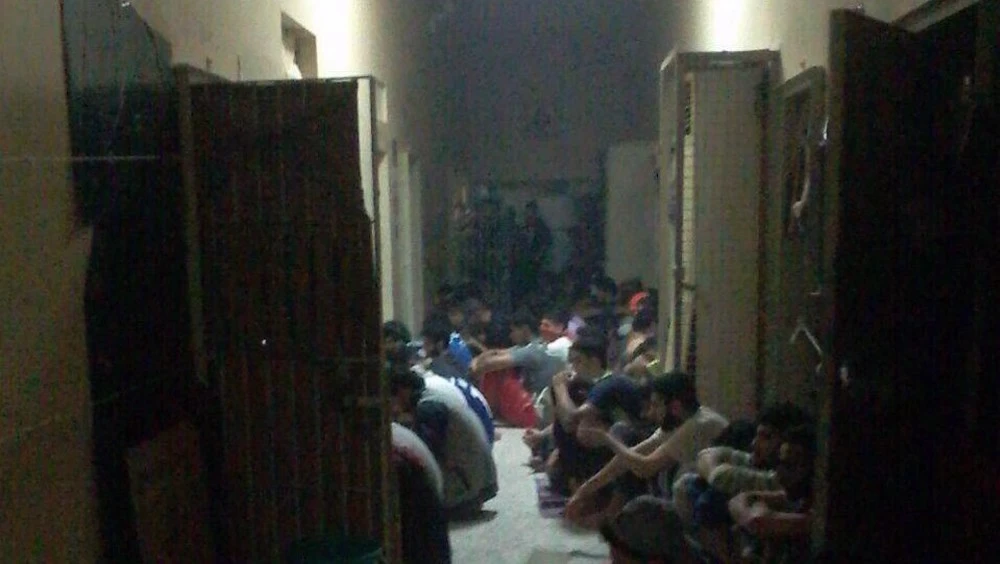UN experts pressure Bahrain on inhumane prison conditions

Stay tuned with 24 News HD Android App

Three independent UN rights experts called on the Bahraini authorities Thursday to guarantee the rights of inmates after allegations about punitive conditions in Jau prison in the south.
They said they had received "worrying allegations" that inmates there had been refused medical attention, as well as regular access to food and drinking water -- charges the Bahraini government has denied.
"We urge authorities in Bahrain to guarantee safe, healthy, and hygienic conditions of detention to every person currently held in Jau prison," the experts said in a joint statement.
They said the authorities had failed to make changes after being contacted by prisoners' families about this and other abuses that had allegedly been going on since March.
"Particularly worrying are allegations that authorities have cut air conditioning, exposing prisoners to extreme heat," with temperatures up to 50 degrees Celsius, (122 Fahrenheit), they said.
"Various restrictions imposed on prisoners' movements and, most recently, the interruption of communications with families must end."
Bahrain's National Communication Centre, the government's media arm, denied the allegations, saying all detainees "are afforded the same healthcare provision as members of the public".
In a statement to AFP, it said that a "commitment to maintaining a safe and secure environment within all reform and rehabilitation facilities, alongside delivering high standards, continue to be in place and any suggestion otherwise is false".
"Rehabilitation programs and procedures adhere to human rights standards, reflecting Bahrain's commitment to a progressive criminal justice system", the statement added.
Rights groups say most of those held at the prison are activists arrested during the crackdown on the 2011 uprising that followed the Arab Spring.
The three UN experts -- Alice Jill Edwards, Michael Fakhri, and Tlaleng Mofokeng -- specialize in issues surrounding torture, the right to food, and health rights, respectively.
The so-called special rapporteurs are independent rights experts appointed by the UN Rights Council but do not speak on behalf of the United Nations.
